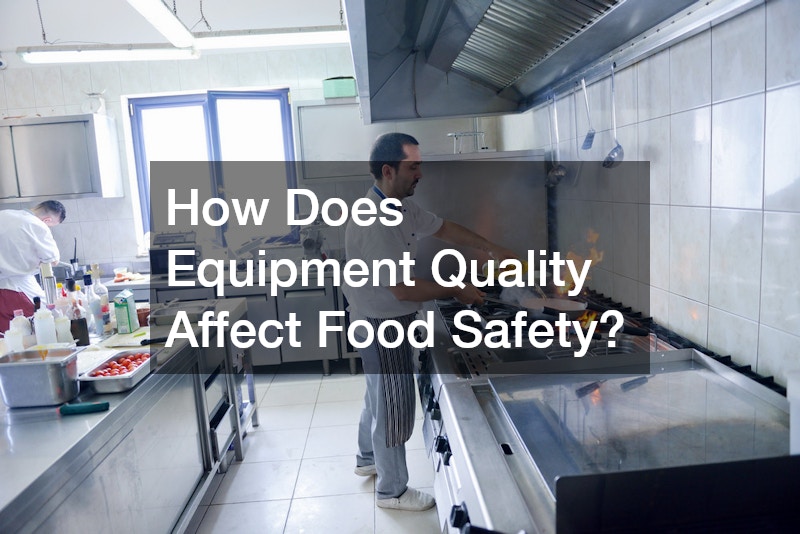In the fast-paced world of the restaurant industry, Quick Service Restaurant (QSR) kitchen equipment plays a pivotal role in enhancing efficiency and productivity. This article explores how investing in modern QSR kitchen equipment can significantly benefit your restaurant operations.
What is QSR Kitchen Equipment?
Definition and Components
QSR kitchen equipment is specifically designed to support the rapid service demands of quick-service restaurants through specially engineered appliances. It includes essential items such as grills, fryers, slicers, and warming stations, all integral to streamlined kitchen operations.
The equipment in a QSR kitchen is built to optimize space and functionality, accommodating the high-volume, fast-turnover cooking environment. These appliances are engineered to handle the rigors of a fast-paced kitchen, ensuring durability and reliability.
By integrating specific components tailored for speed and efficiency, QSR equipment helps reduce wait times, thus enhancing customer satisfaction. In busy restaurant settings, these components become crucial in maintaining a steady flow of food preparation and delivery.
The Role of Technology in QSR Equipment
Modern QSR kitchen equipment is increasingly leveraging cutting-edge technology to streamline cooking processes, ensuring consistency and quality in food production. Using advanced technology reduces human error and allows for precise control of cooking parameters.
Appliances often feature programmable settings that allow for customization based on the menu, contributing to the reproducibility of popular dishes. This technological integration minimizes waste by optimizing ingredient usage and reducing overproduction.
By harnessing technology in kitchen equipment, restaurants can also gather valuable data insights that aid in decision-making and efficiency improvements. Such technological advancements ensure a competitive edge in the fast-evolving restaurant industry.
How Does QSR Kitchen Equipment Improve Efficiency?
Time-Saving Features
QSR appliances often come equipped with features such as programmable settings and rapid heating capabilities, which expedite food preparation times significantly. These time-saving features allow staff to focus on other tasks, thus increasing overall productivity.
Programmable settings reduce the need for constant supervision, freeing up employees to multitask efficiently in a busy environment. Rapid heating ensures dishes are served hot and fresh in minimal time, preventing delays during peak hours.
The integration of such features supports a seamless kitchen workflow, reducing bottlenecks and enhancing customer satisfaction with quick service. This efficiency supports the high throughput demanded by quick-service restaurants.
Streamlining Operations
With specialized QSR kitchen equipment, staff can maintain an organized and efficient workspace, greatly improving overall kitchen productivity. Ergonomically designed appliances also contribute to smoother operation and reduced physical strain on employees.
The layout of QSR equipment is optimized to minimize unnecessary movement, allowing staff to access tools and ingredients rapidly, thereby speeding up service. Streamlined operations also contribute to more effective communication and collaboration among team members.
By equipping the kitchen with the right tools for the job, operations are not only streamlined but also elevated, yielding higher output levels. Such improvements lead to better resource management and increased profitability for the restaurant.
What are the Cost Benefits of Using QSR Kitchen Equipment?
Energy Efficiency and Cost Savings
Advanced QSR kitchen appliances incorporate energy-efficient technologies, which significantly lower utility bills, presenting a sound financial investment over time. These appliances use less electricity and gas while maintaining high performance levels.
With energy-saving features, restaurants can control operating costs without compromising on the quality or speed of service. Over time, the reduction in energy consumption contributes to substantial savings and improved profit margins.
Many manufacturers design equipment with sustainability in mind, offering models that are not only economical but also environmentally friendly. This forward-thinking approach aligns with growing consumer interest in sustainable business practices.
Reduction in Food Waste
Precision cooking features incorporated in modern QSR kitchen equipment help curtail food spoilage and waste, yielding significant savings in operational costs. Such features ensure that ingredients are cooked perfectly, thereby maximizing their usage.
Additionally, efficient storage solutions prevent spoilage by maintaining optimal temperatures for both raw and prepared foods. This meticulous control over food storage and preparation aids in waste reduction, contributing to cost-effectiveness.
Reducing food waste not only lowers expenses but also promotes more eco-friendly kitchen practices. In the long run, minimizing waste supports sustainability goals and enhances a restaurant’s reputation for responsible management.
How Does Equipment Quality Affect Food Safety?
Compliance with Health Standards
High-quality QSR kitchen equipment is designed to meet stringent health and safety standards, ensuring a safer environment for food preparation. Compliance with these standards is crucial to prevent foodborne illnesses and maintain customer trust.
Investing in superior equipment ensures adherence to industry regulations, minimizing the risk of health violations and potential legal issues. Such equipment also supports routine sanitation practices, helping maintain a hygienic kitchen environment.
The assurance of safety standards compliance allows chefs and staff to focus on food quality and creativity. This quality management translates into higher customer satisfaction and loyalty.
Temperature Control and Hygiene
Maintaining proper cooking and storage temperatures is crucial for preventing foodborne illnesses, a task efficiently managed by advanced QSR appliances. Equipment with precise temperature control features ensures foods are cooked to safe internal temperatures.
Proper refrigeration and heating ensure perishables and prepared dishes remain safe for consumption, reducing health risks. Effective temperature control plays an essential role in food safety management, particularly in high-volume operations.
Moreover, easy-to-clean surfaces and components in these appliances contribute to better hygiene standards. Regular maintenance supported by high-quality equipment promotes a sanitary environment and optimal food safety practices.
